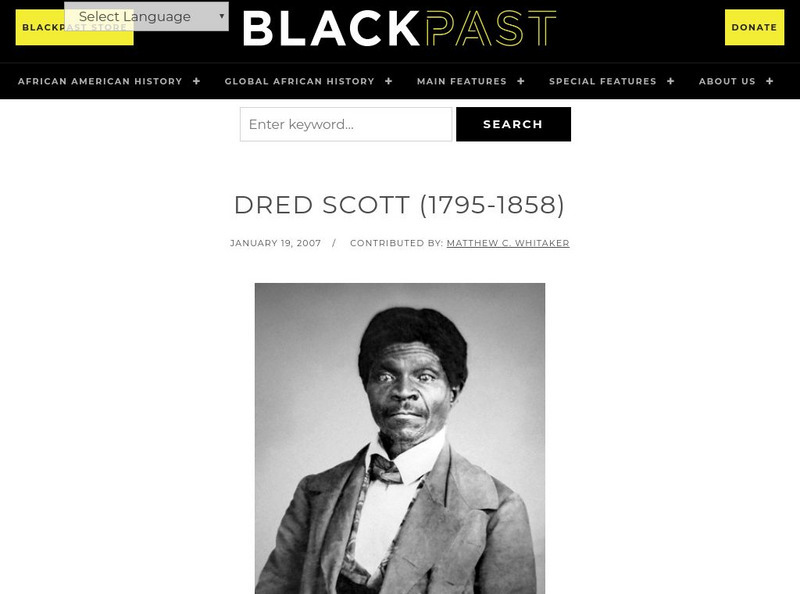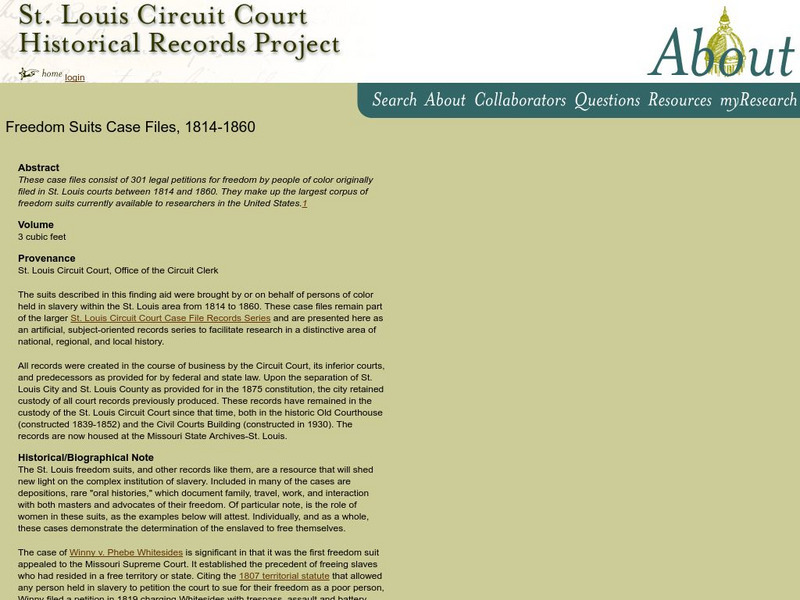US National Archives
Docsteach: From Dred Scott to Civil Rights Act of 1875: Eighteen Years of Change
In 1857, the U.S. Supreme Court ruled in the Dred Scott decision that African-Americans were not citizens of the United States. Yet within 18 years, Black Americans would not only have citizenship, but would be guaranteed the right to...
PBS
Wnet: Thirteen: The Supreme Court: Landmark Cases: Dred Scott v. Sandford (1857)
PBS features a summary of the landmark Supreme Court case of Dred Scott v. Sanford which ruled that African Americans are not American citizens, and therefore could not sue in federal court. Decision written by Chief Justice Roger B. Taney.
Black Past
Black Past: Dred Scott
This encyclopedia article is a brief biography of Dred Scott, the slave who sued for his freedom. His case went all the way to the U.S. Supreme Court, where he lost.
Library of Congress
Loc: Slaves and the Courts
Slaves and the Courts, 1740-1860 contains just over a hundred pamphlets and books (published between 1772 and 1889) concerning the difficult and troubling experiences of African and African-American slaves in the American colonies and...
Other
National Civil Rights Museum
Get a glimpse of what is housed in the National Civil Rights Museum in Memphis, Tennessee. The interactive tour highlights the struggle and introduces key historical figures such as Sojourner Truth, Nat Turner, Dred Scott, and Frederick...
Other
Missouri State Archives: Freedom Suits Case Files, 1814 1860
An exhaustive, searchable website with original court records on 300 legal petitions for freedom by people of color, originally filed in St. Louis courts between 1814 and 1860.
Curated OER
Educational Technology Clearinghouse: Clip Art Etc: Roger Brooke Taney
(1777-1864) "Chief Justice of the United States Supreme Court, who gave the decision in the Dred Scott Case." -Foster, 1921








